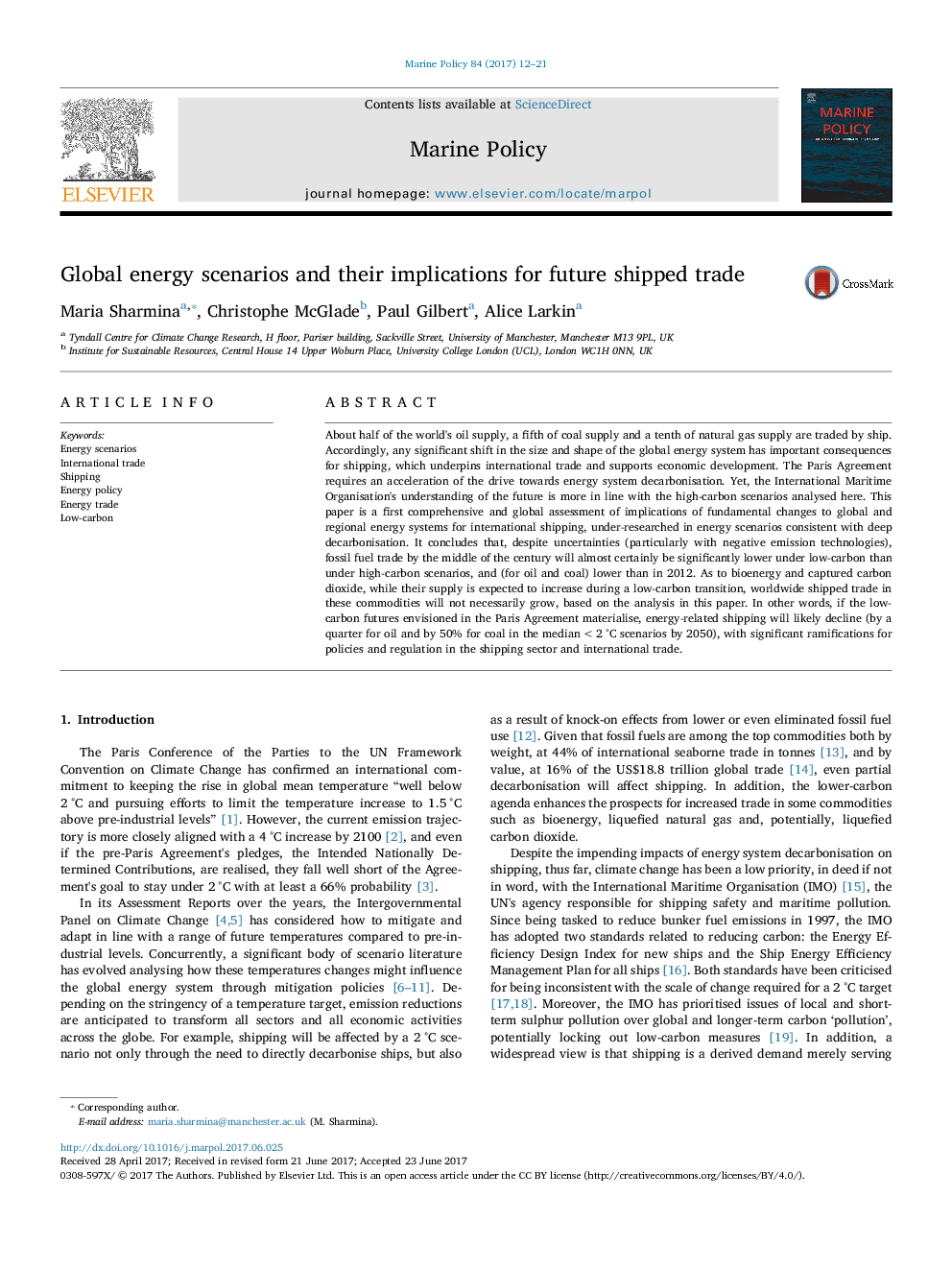ترجمه فارسی عنوان مقاله
سناریوهای جهانی انرژی و پیامدهای آنها برای تجارت آینده حمل و نقل
عنوان انگلیسی
Global energy scenarios and their implications for future shipped trade
| کد مقاله | سال انتشار | تعداد صفحات مقاله انگلیسی |
|---|---|---|
| 111439 | 2017 | 10 صفحه PDF |
منبع

Publisher : Elsevier - Science Direct (الزویر - ساینس دایرکت)
Journal : Marine Policy, Volume 84, October 2017, Pages 12-21
ترجمه کلمات کلیدی
سناریوهای انرژی، تجارت بین المللی، حمل دریایی، سیاست انرژی، تجارت انرژی، کم کربن،
کلمات کلیدی انگلیسی
Energy scenarios; International trade; Shipping; Energy policy; Energy trade; Low-carbon;

